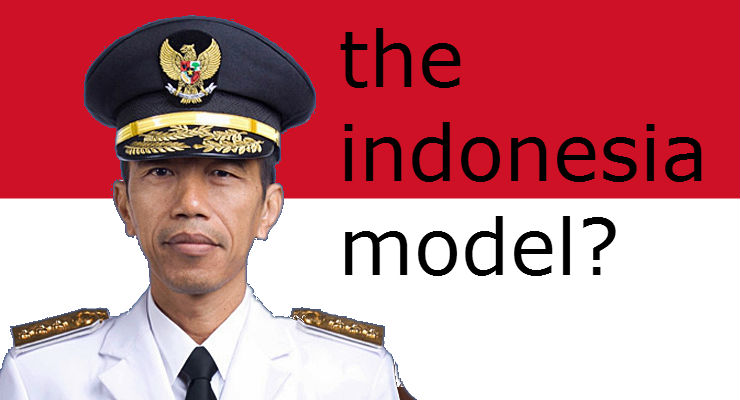
Human rights activists in Indonesia are raising concerns about a revised counterterrorism law they say may restrict freedoms of expression and association.
In the wake of several shocking terrorist attacks in East Java and Riau this month, including two suicide bombings carried out by families, Indonesia’s House of Representatives unanimously passed a revised counterterrorism law that would allow police to more broadly prosecute suspected terrorists and terrorist activity.
The revisions were originally proposed after a terrorist attack in Jakarta in January 2016, but floundered for two years until this month, when they were quickly passed after the Surabaya bombings. President Joko “Jokowi” Widodo was under pressure to pass the revisions after the attacks and threatened to issue a presidential decree if the House did not act promptly.
The new law allows police to hold suspects for up to 221 days in detention before they are brought to court, allows the military to join police in counterterrorism operations, and expands the definition of terrorism along broad lines that may criminalize activist groups.
“We mainly have concerns with [the] articles that expand the definition of terrorism to include any kind of violence,” said Papang Hidayat of Amnesty International Indonesia, as well as those that allow for prolonged detention. “In Indonesia, we still have a flawed criminal procedures court, inherited from Dutch colonial rule, which does not recognize rights like habeas corpus. Nor is torture considered a criminal act. So, the revised law raises major human rights concerns.”
Civil liberties
The revised law passed after three days of discussion, according to Andreas Harsono, a researcher with Human Rights Watch in Jakarta. “The last three days were only used to argue about the definition of terrorism,” he said.
The language in the law’s Article 1.2 broadens the definition to include “violence or threat of violence which creates or intends to create an atmosphere of terror or widespread fear, creating multiple casualties and/or resulting in damage or destruction of vital strategic objects, the environment, a public facility, or an international facility with ideological, political or security disturbance motive.”
Harsono said this could be used to target the peaceful activism of indigenous groups, environmentalists, and religious or political organizations.
One potential target of the revised law is Papuan activists, from the two contested easternmost provinces of Indonesia, Papua and West Papua, where the Indonesian government has been embroiled in a conflict with indigenous inhabitants for over five decades.
“There are two areas in Papua where criminals are tried against the state … Jayapura and Timika,” said Harsono. “Thus, if you attack a point in Freeport [the world’s largest gold mine, which is located in Papua] or a police officer in Freeport, you might technically be branded a terrorist.”
Many countries have had to strike a balance between privacy and security in devising their counterterrorism laws, including the United States, which controversially expanded government surveillance with the Patriot Act after the attacks of Sept. 11, 2001.
Mitigating the impact
“The revised law was definitely a response to the recent attacks in Surabaya,” Hidayat said.
Amnesty International Indonesia has written an open letter to the parliament with its concerns.
He is particularly worried about the growing role of the Indonesian military in counterterrorism operations.
“The Indonesian military has no accountability,” he said. “They can only be tried in their [internal] tribunal system.”
The move to involve the military in counterterrorism — in Article 43 of the revised law — came just days after the Joint Special Operations Command, a domestic counterterrorism squad, was revived.Per the revised law, military involvement would require both a request from the police and the president’s approval.
“The involvement of the military must be limited going forward,” Hidayat said. “But this can only be done by presidential decree.”
It is unlikely that Jokowi will roll back any provisions so soon after the revisions were pushed through, particularly since he is standing for re-election next year and national security will be a major policy issue.
The law was passed “in an effort to protect the entire nation and all the blood of Indonesia,” Muhammad Syafii, chairman of the Special Committee for the Revision of Terrorism Law, said last week.
Officials in Indonesia’s House of Representatives could not be immediately reached for comment.
Activists say the revised law could also further curb freedom of expression in Indonesia, which already has punitive blasphemy and defamation laws. Its Article 1.4 defines the threat of violence as “speech, writing, picture, symbol or body language, with or without electronic or non-electronic form which could create widespread fear.”
Indonesian citizens can be arrested for Facebook posts, and blasphemy charges have a 100 percent conviction rate.
Leave a Reply